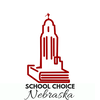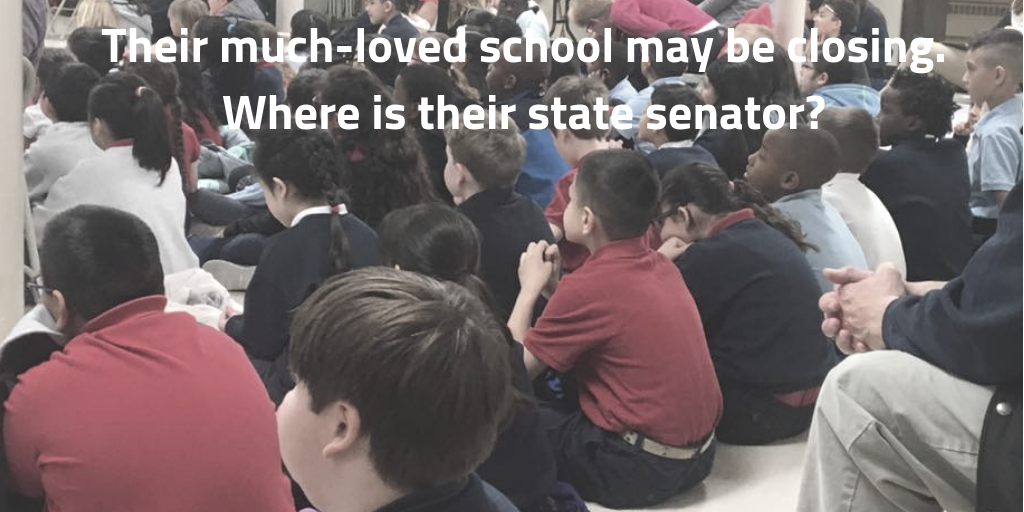|
by Deb Portz The benefits of private school choice should not be limited only to those who can afford it. On Sunday, November 18th, I attended a parent meeting in the basement of St. Mary's in downtown Lincoln across the street from our state capitol. About 200 parents were in attendance. St. Mary's pastor, Fr. Dietrich, addressed the crowd of around 200 parents, and explained the financial situation of three of Lincoln's poorest Catholic elementary schools - St. Mary's, Sacred Heart, and Blessed Sacrament. He explained that one or two of these schools would likely close at the end of this school year unless each school could raise $150K+ to cover deficits. That did not include infrastructure needs at each school. These are schools that offer a private, faith-based education to students who live in the highest poverty neighborhoods in Lincoln, and for many, where English is not the primary language spoken in the home (there are 17 languages spoken among students at St. Mary's alone). At St. Mary's, over 90% of the 123 students would qualify for free-and-reduced lunch at LPS. I watched with a broken heart as St. Mary's parents looked for ways they could reverse the direction of these outcomes - one parent offered to sell tamales and work bingo all year, one offered to volunteer skills she was learning in her Marketing class at SCC. I watched math teacher, Frank McEntarffer, offer an aggressive fund-raising plan for parents to engage in during the year, as well as offering half his annual salary ($20,000) to the school. I watched as my friend, and St. Mary's principal, Nina Beck, took questions after the presentation from worried parents who realized they lack options to keep their first choice for educating their children at St. Mary's. I have worked with St. Mary's kids on school choice grassroots activities for the last four years. I have watched them embrace a unique curriculum in math, using Ec3 Academy and UNL Engineering students as mentors to coach middle school math. In those four years, not only have middle schoolers at St. Mary's gone on to Pius and LPS high schools excelling above their peers in math assessment criteria (most have a college-and-career ready ACT score of 23 in the 8th grade), they have eliminated the need for remedial math courses at Pius and won statewide math competitions. They have drastically closed the usual statewide acheivement gaps for minorities in the last 5 years, using less than 1/2 the amount of taxpayer money spent for a student in LPS, and they have done something our public schools in Nebraska have not been able to do in math outcomes in Nebraska in three decades. So much so, LPS approached Ec3's Dan Alberts to have him execute the math curriculum in their schools. Unfortunately, the lack of autonomy and curriculum quality control demanded by LPS made a program that was proven to be highly successful for at-risk students, unable to function within the system using the criteria that made it so successful. If these Catholic schools close, students will either matriculate into LPS at double the cost to taxpayers, or they will be bused to other Lincoln diocese schools. Neither will be the first choice of these parents for the education of their children for all sorts of unique reasons. And while I realize the funding model of Catholic schools is part of this problem, it is also a problem of our state, city and communities in education. I suggested we look at what Omaha has done with similar poor Catholic schools in development, using a model like Cues Omaha (three schools in North Omaha) or Omaha Catholic School Consortium (five schools in South Omaha) for dual language learners. Private school choice legislation across America is not only succeeding at improving education outcomes like closing achievement gaps with low-income minorities, it is saving taxpayer dollars that can be used across many areas of public education. And it gives parents the power to choose the education that fits their child and family. It is the fast-moving progress, innovation and improvement in public education in America that Nebraska is missing out on because the lobbying to protect the power and control of the education monopoly is well-funded in Nebraska. Change will only come as Nebraskans educate themselves more about how school choice benefits everyone, especially our public schools and rural schools. I will continue to work to organize the Nebraska School Choice Week rally each January to raise awareness about the benefits of allowing a parent to choose their child's K-12 education. I will continue to support educators and legislators who are trying so hard to improve the use of taxpayer dollars for public education and how we measure education outcomes with more meaningful and effective approaches. I will continue to testify in legislative committee hearings for school choice and education reform bills, and I will call out the inaccuracies and hypocrisies spoken by state senators, school board members, superintendents, and the teacher's union on how school choice will ruin public education or that we already have equal opportunity in school choice in Nebraska. My coalition colleagues and I will write letters to the local papers, and maybe they will be published, and maybe they won't. But now is time for Nebraskans to support these efforts and make your voices heard. Otherwise, we will continue to lose choices for parents and students that are proven to be successful by having more opportunity to find the best fit for each kid in education. We'll have another post soon to show exactly where their state senator stands on providing students with educational options that meet their needs.
0 Comments
Your comment will be posted after it is approved.
Leave a Reply. |
|


 RSS Feed
RSS Feed